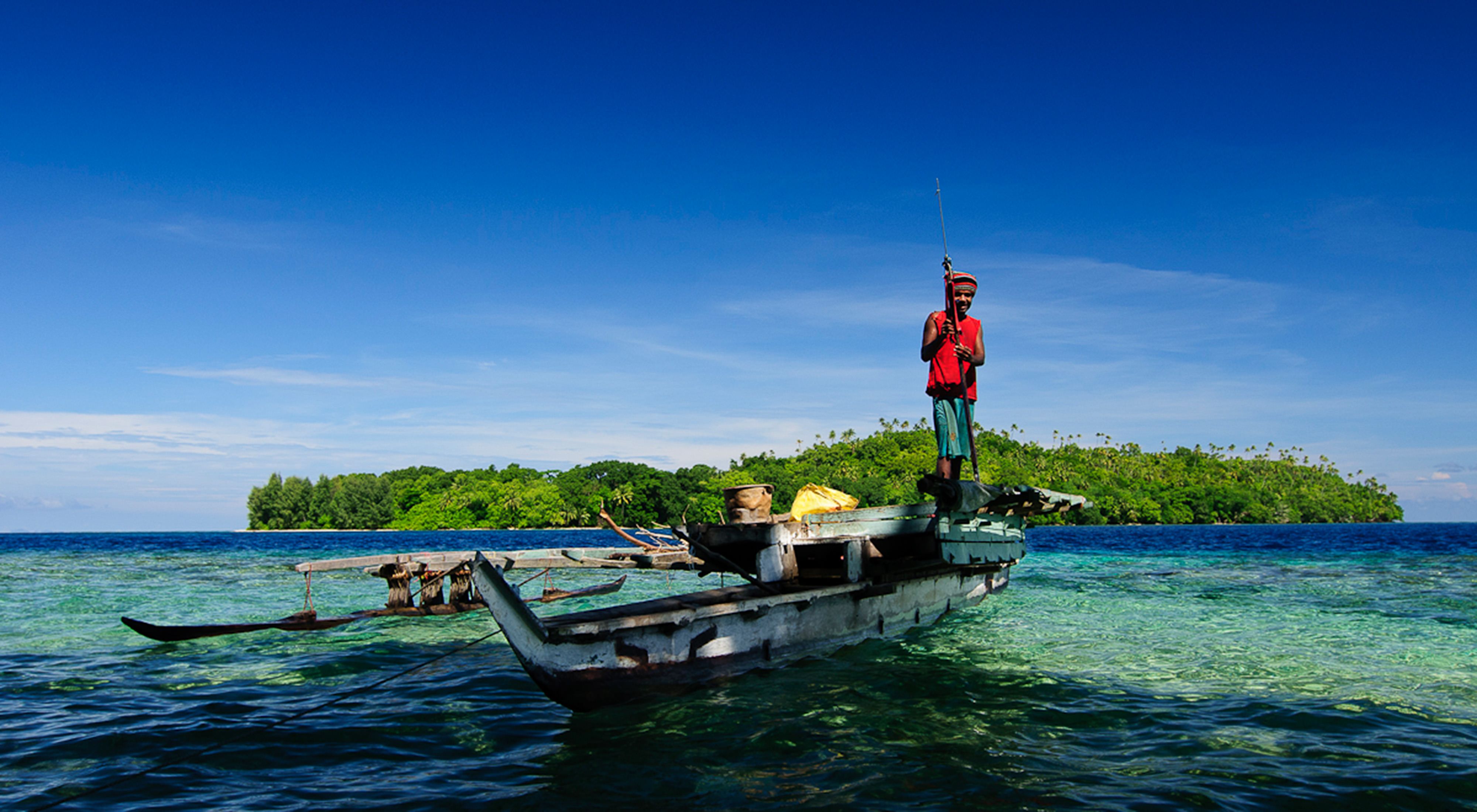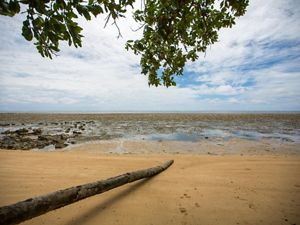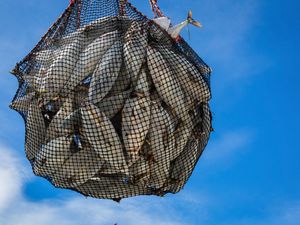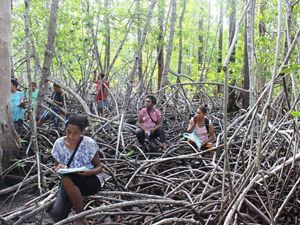Stories in the Pacific Islands
High-Value Fisheries Model
In Manus, Papua New Guinea, we are helping local communities get top-dollar for their well-managed sea cucumber fisheries.
Manus is a small island in Papua New Guinea, where the seascapes and ocean support the livelihoods of its community. With 80 percent of Manus’ people living on or near coasts, these waters provide a wide range of services, from meeting the daily protein needs of local populations to creating income through fishing and aquaculture. With a mostly sustenance lifestyle, sea cucumbers are one of the most important cash commodities on the island.
Yet these ocean waters, and the services they provide, are at risk. Overfishing, habitat loss and degradation, pollution, development and the growing impacts of climate change are threatening both food security and local livelihoods. To address these challenges, The Nature Conservancy (TNC) is helping local resource owners assess their economically valuable sea cucumber fisheries and establish sustainable management regimes, including a network of protected areas.
After an eight-year hiatus to allow stocks to repopulate, the sea cucumber fishery on Manus Island has re-opened. Working with the tribal group, Mwanus Endras Asi Resource Development Network (MEARDN), we conducted marine and socio-economic surveys before the opening and after the closing of the season to assess the impact of the fishery’s harvest.

Harvesting and processing sea cucumbers has been a tradition in this island nation for over 200 years: A luxury food in Asian markets, sea cucumbers are hand-picked by fishers and processed by families, using natural, basic techniques that are passed down over generations — similar to the standard processing techniques currently used throughout the region. However, due to rapidly increasing demand from China, sea cucumber fisheries around the world regularly experience unsustainable boom-and-bust cycles.
For the first time, TNC is working at both the supply and demand sides of this seafood chain. We assessed the market potential for sustainably harvested marine resources in Hong Kong while developing strategies to create demand for sustainable products that can command a premium price.
TNC then helped MEARDN secure a sea cucumber export license. The new harvest model, which utilized NatureVest’s innovative financing, resulted in the export of 1.5 tons of this highly sought-after but threatened delicacy to Hong Kong, representing a 2.5-fold profit increase compared with previous seasons. The money earned goes back to the tribal co-op in Manus through higher prices paid to fishers and reinvestment in local community projects.
The MEARDN tribal network represents artisanal fishing communities of 10,000 fishers covering a 2.4-million-hectare seascape. Sustainable resource use is a central pillar of the network’s philosophy. With help from TNC, MEARDN has established a managed area across their entire traditional seascape, which includes protected areas and fisheries management measures (such as restrictions on net sizes and night spearing) that will conserve coral reefs, fisheries, turtle nesting beaches, shark aggregation sites and cultural heritage areas.

In places like Papua New Guinea where people largely depend on their natural resources for survival, there is both need and opportunity for innovative projects that deliver integrated social and environmental benefits, such as this sea cucumber project. TNC knows conservation endures when it enables communities to provide for their families and to reap the benefits that come from protecting their shared resources.



